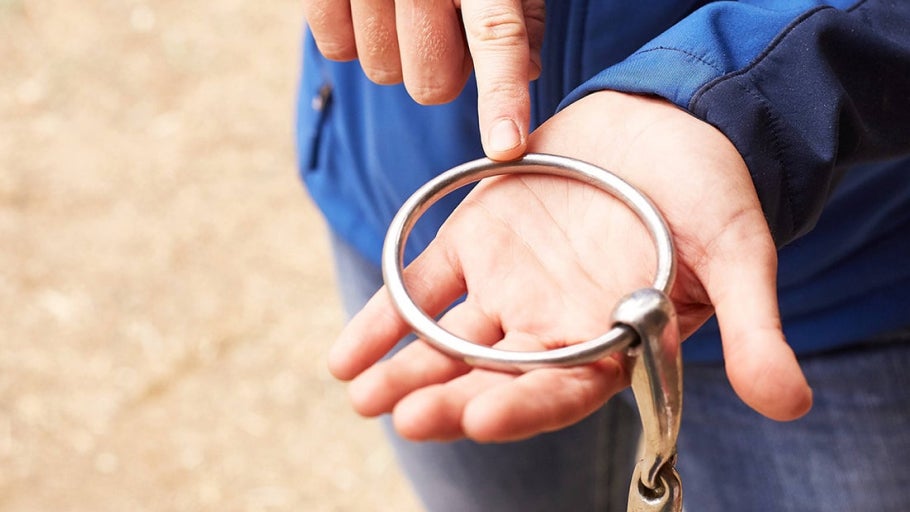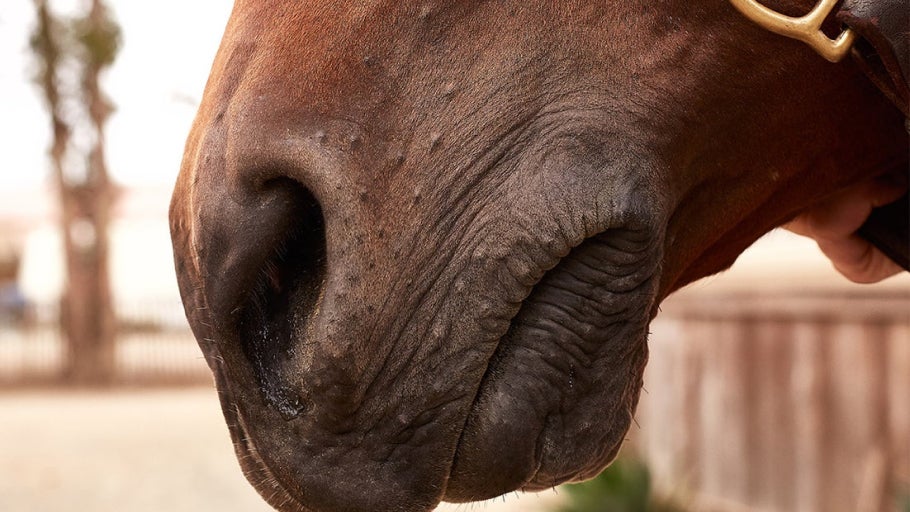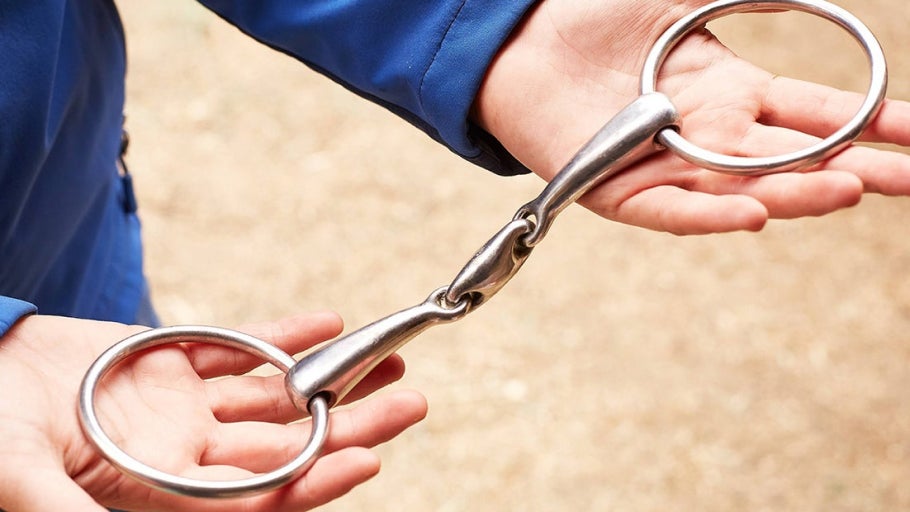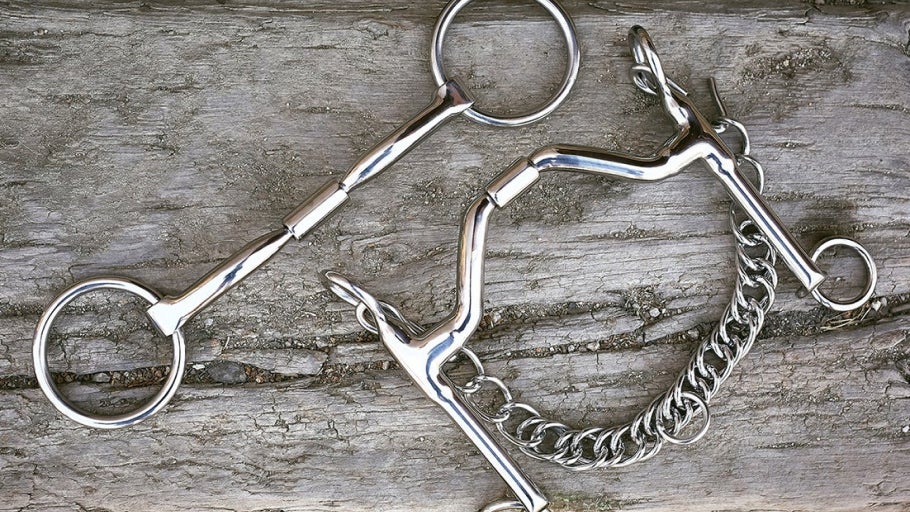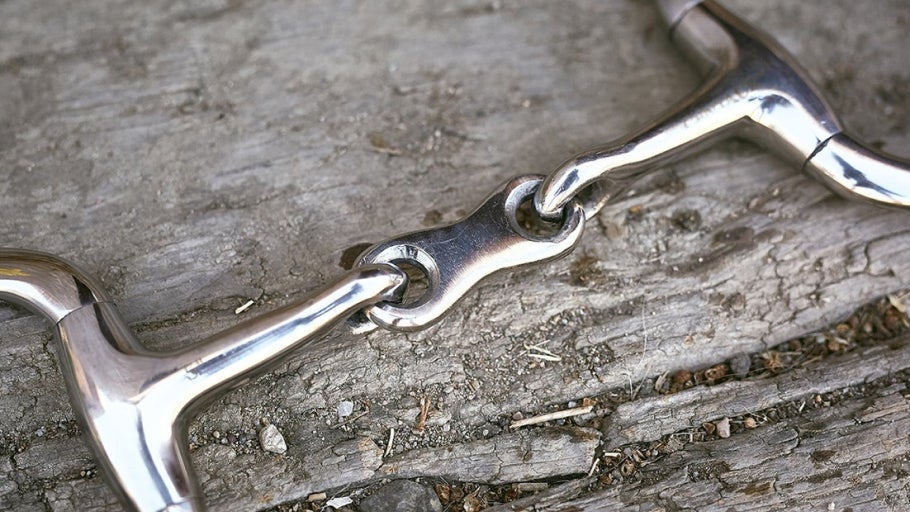
Horse Bit Material Buying Guide:
Types, Features, & More
Think all bits are made out of the same materials? Think again! There are actually many different types of bit materials on the market, in addition to traditional steel. Some unconventional materials are better for sensitive-mouthed horses, while other materials encourage salivation and bit acceptance.
In this guide, we will go through a variety of horse bit materials, what their function is, and what features they have to aid with bit acceptance. We will cover these common bit materials to help you pick what is best for your horse: stainless steel, copper and sweet iron, blue alloy, rubber, plastic, and leather. Let us jump into horse bit materials!
Types of Horse Bit Materials
Stainless Steel
The most common material for bits to be made out of is stainless steel. This material is extremely durable and will not flake or rust over time. Stainless steel can be temperature sensitive, which should be taken into consideration in extremely hot or cold environments.
Copper and Sweet Iron
Bits that use copper or sweet iron encourage the horse to salivate, relax their jaw, and more easily accept the bit. Commonly seen on Western bits, this material naturally rusts to produce a sweet taste that the horse enjoys. Compared to traditional steel, copper bits are more heat conductive and softer, and they wear more quickly. This is why copper bits are typically mixed with another type of metal for strength, or only used as an inlay in stainless steel bits. Copper material can range in color from orange to bright gold.
Blue Alloy
Blue Alloy is another type of sweet iron, which functions the same to make the horse salivate more. The rusting process (also known as oxidation) will change the blue surface of the bit to a brownish orange/grey color. This is natural and will produce a sweet taste that encourages the horse to soften its mouth and accept the bit.
Rubber
Rubber bits can be made out of different types of rubber, all with varying degrees of durability. These bits are preferred by horses with sensitive mouths that do not like the feel of metal. However, horses can chew through the rubber, which can create sharp points that rub and cause irritation in the mouth. Rubber does not conduct heat like metal does, making it more pleasant to handle in cold weather.
Plastic
Plastic bits are another alternative to metal bits. The plastic is soft and flexible and is typically flavored to gain the horse's acceptance. Plastic is also another good option for sensitive-mouthed horses. Similar to rubber, plastic bits can be chewed through and sharp points can form with use.
Leather
Leather bits are suitable for horses with especially sensitive mouths, as they are soft and malleable when immersed in saliva. These bits come in two versions: one where the bit is completely made of leather and one where leather is wrapped around a metal core. Completely leather bits have little to no core and are therefore very flexible in the horse's mouth. Leather-covered bits offer the soft feeling of leather but with a more stable core.
The idea of wrapping a bit in leather is similar to wrapping it in Sealtex, which softens the bit against the tongue, bars, and lips. Unlike rubber or plastic bits, horses can chew on leather without it becoming sharp or releasing chemicals.
Closing Thoughts
We hope our guide helped clear up the differences and similarities between the varying horse bit materials. Consider how your horse is reacting to their current bit to determine whether they might do better in an alternative bit material to more readily accept your communication aids. If you need more direction on what bit material would suite your horse best, feel free to contact our helpful customer service at info@ridingwarehouse.com or 1-800-620-9145 for more assistance. Happy riding!
Related Articles

